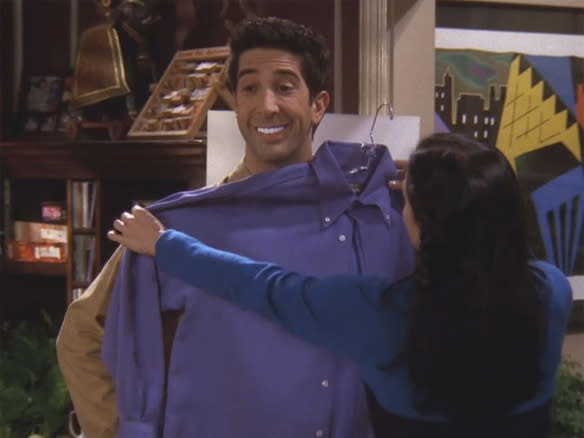8 things to know before whitening your teeth

In the pursuit of a whiter and brighter smile, tooth whitening is one of the largest growing cosmetic procedures in the UK, according to the Oral Health Foundation - with the industry now estimated to be worth over £40 million every year.
Along with the surge of treatments, there's also been an increase in unlicensed and untrained procedures. If you're considering a whiter smile, it's important to look at the risks, efficacy and options available. We spoke to Clinical Director for BUPA dental Dr Eddie Coyle who gave us the whitening lowdown...
1. Consider the safety of the treatment
"There are many options available for patients when it comes to whitening teeth – from bleaching kits and toothpastes, to in-chair treatments and holistic remedies. However, it is important to remember that before trying anything, patients should consider whether the treatment is safe, approved and conducted correctly in clinical environment.
"Many products that can be bought online or over-the-counter can pose risks to our health, particularly if you don't know whether the level of bleach they contain is safe. Likewise, whitening treatments performed in unregistered beauty salons or shops can also be risky – therefore it's important to remember that only dentists registered with the General Dentist Council can carry out teeth whitening.
"If you are looking to get your teeth whitened, it's important for you to book a check-up with your dentist beforehand, so that you make sure your mouth is healthy before discussing your options for whitening."
2. Whitening is suitable for the majority of people, apart from these few…
"For the vast majority of people, whitening can work really well and the results will be a significant improvement. However, there are some instances where patients aren't suitable for treatment. For instance, those who have dental restorations such as crowns or bridges; porcelain veneers; cosmetic bonding or tooth coloured fillings will find that the bleaching agents won't work on all their teeth.

"It is also worth bearing in mind that while teeth whitening is completely safe when conducted properly, it can lead to temporary sensitivity to temperature, pressure and touch, as well as temporary gum irritation. With that in mind, it's important for you to visit your dentist to assess the status of your teeth and gums prior the treatment."
3. You can choose an instant whitening treatment at the dentist
"The Zoom! Whitening treatment performed at the practice is a quick and effective way to whiten your teeth in a short space of time. Zoom! Whitening can mean you see visible results after just one hour, whereas the Home Whitening can take a little longer than this.
"However, the comfort of being able to whiten your teeth at home is an important factor for many of my patients. The result will eventually be the same, so patients can just pick the treatment that suits them and their needs best."
4. Results can last for up to three years
"The effects of whitening can last up to three years. However, this will vary from person to person. The effect is less likely to last as long if you smoke, or eat or drink things that can stain your teeth. It is also important for patients to brush and floss regularly throughout the day, to maintain a good oral hygiene and a whiter shade. Ask your dental team for their opinion before you start the treatment."
5. The biggest culprits for teeth staining are…
"The biggest culprits for teeth staining are dark drinks, such as tea and coffee, but also red wine. Drinking several cups of black tea or coffee per day might cause the chemicals contained in those beverages to turn your teeth yellowish, or a darker shade. Red wine is staining because of the dark purple colours found in the grapes used for its production.

"When it comes to staining factors, cigarettes are most certainly one of the worst. Tobacco is highly staining and the number of cigarettes smokers have every day cause their teeth to be continually exposed to the staining process.
"Dark carbonated drinks also pose a risk to the colour of our teeth. In fact, the food colouring contained in these products can have a major staining effect.
"Drinking tea, coffee or other dark drinks through a straw works as it may help to reduce the time that your teeth are in contact with these beverages, meaning they should be less likely to stain - although this is not a fool-proof solution and ideally you should aim to reduce your consumption overall."
6. Flossing is so very important
"Following a whitening treatment, people should avoid dark-coloured foods and beverages for at least 48 hours after the procedure. These include coffee, tea, red wine, pasta sauce, etc. The enamel remains porous for this period of time making it easy for the above mentioned items to penetrate the outer surface of enamel and stain your teeth.
"It is also essential to practice excellent oral hygiene – this includes, not only brushing but also flossing, after meals and before bedtime."
7. And, contrary to belief, it doesn't affect your enamel
"I get asked this a lot – the conclusive answer is no. Dental whitening products only remove surface stains that are in the microscopic pores of your teeth. The bleach does not penetrate deeply within the tooth."

8. Watch out for red flags
"It's important that only dentists registered with the General Dental Council carry out teeth whitening – nobody else is qualified to do so. I cannot stress this concept enough.
"If a dental professional is not doing the whitening, the mouthguard provided may not fit properly so some of the bleaching gel may leak out onto your gums and into your mouth, causing blistering and sensitivity.
"Additionally, when it comes to DIY home kits, many people fail to realise is that these home kits could be putting them in danger. Online products may not be safety-approved and unregulated kits can contain higher and dangerous levels of the bleaching agent.
"It is vital that your dentist confirms there are no issues requiring treatment in your mouth before thinking about whitening your teeth. If something seems too good to be true – it usually is!"
[editoriallinks id='40f44d69-9b29-4f50-bbbc-44e595763c62'][/editoriallinks]
You Might Also Like

